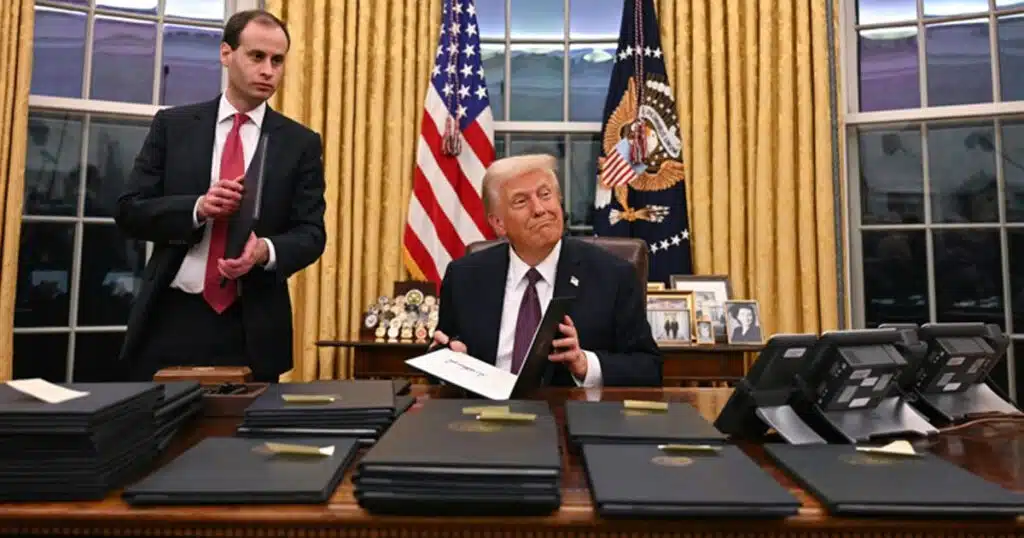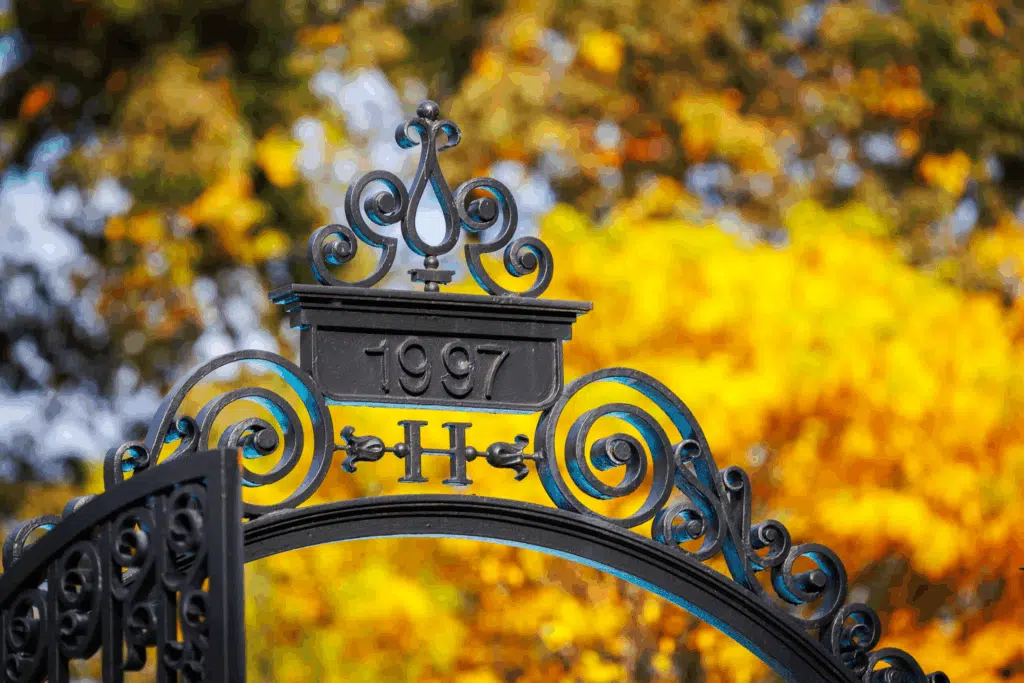
Left-Wing Groups Call on Federal Election Agency to Defy Trump Executive Order
A coalition of left-leaning organizations is urging the U.S. Election Assistance Commission to defy President Donald Trump’s executive order on election integrity.
Trump on Tuesday issued the order that, among other things, requires federal voter registration forms require proof of citizenship and would cut federal funding to states that count mail-in ballots arriving after Election Day.
The Election Assistance Commission—an executive branch agency created under the 2002 Help America Vote Act—manages federal voter registration forms and federal election grants to states and localities.
The seven-page letter to the commission was led by the liberal Brennan Center for Justice, a think tank aligned with New York University that has consistently opposed voter ID, voter list maintenance, and other election security measures.
Joining the Brennan Center were the American Civil Liberties Union, the League of Women Voters, the Legal Defense Fund, and the NAACP.
“The order itself is unlawful as it relates to the U.S. Election Assistance Commission (the “Commission”), and it would, in any event, also be unlawful for the commission to take several of the actions directed by the order,” the letter says.
My book, “The Myth of Voter Suppression,” describes these organizations and their funders as comparable to political machines of the past that resisted what were considered election integrity reforms at the time, such as adopting a secret ballot. Similarly, those organizations have consistently opposed election reform proposals, such as the Safeguard American Voter Eligibility (SAVE) Act, which would require proof of citizenship to register to vote.
The letter adds: “Congress created the commission with the express intent that it be an ‘independent’ agency, not subject to the president’s direction.”
The Trump administration has argued the unitary executive theory of the Constitution gives the president power over all executive branch agencies. As an issue extending beyond the Election Assistance Commission, legal scholars have debated how “independent” an executive branch agency can be, and moreover, how democratic it is for an agency to operate independent of an elected president.
“For the reasons stated above, the president cannot direct the commission, an independent bipartisan agency,” the Brennan-led letter continued. “Moreover, neither the president nor the commission can unilaterally impose conditions on federal funding without congressional approval. Indeed, it is well-established that Congress must clearly authorize any spending condition. An agency that acts without congressional authority, as the Order directs the Commission to do, not only violates the Administrative Procedure Act, but also the constitutional separation of powers.”
The Trump executive order was designed to cut the number of noncitizens on the voter registration rolls, allow the Department of Homeland Security to share data on illegal immigrants with election officials, requires the Justice Department to prosecute election crimes, and take civil action against states that don’t enforce federal election laws.
“Election fraud, you’ve heard the term, this will go a long way toward ending it,” Trump said last week when signing the order. “There are other steps we will be taking in the coming weeks, and we think we will end up getting fair elections. Perhaps some people think I shouldn’t be complaining because we won in a landslide, but we’ve got to straighten out our elections. This country is so sick because of the fake elections and the bad elections. We are going to straighten it out, one way or the other.”
The letter from the liberal coalition further argues that the federal government can’t push states to require mail-in ballots be delivered by the end of Election Day.
As The Daily Signal previously reported, at least 17 states count mail-in ballots that arrive after Election Day. Among the longest deadlines, Illinois and Utah count ballots arriving up to 14 days after Election Day; Alaska and Maryland count late arrivals up to 10 days after, while California, the District of Columbia, New York, and Oregon count ballots for up to a week after Election Day.
“The statutes setting the time for federal elections are not among the laws with which states must certify compliance under [the Help America Vote Act]. Nor do those laws setting Election Day prohibit the counting of ballots postmarked by, but received after, Election Day, which Congress or states have the authority to allow,” the letter says. “The Order cannot require the Commission to condition state funding on policies adopted only by the Order itself.”
The Election Assistance Commission did not immediately respond to an inquiry for this article.



